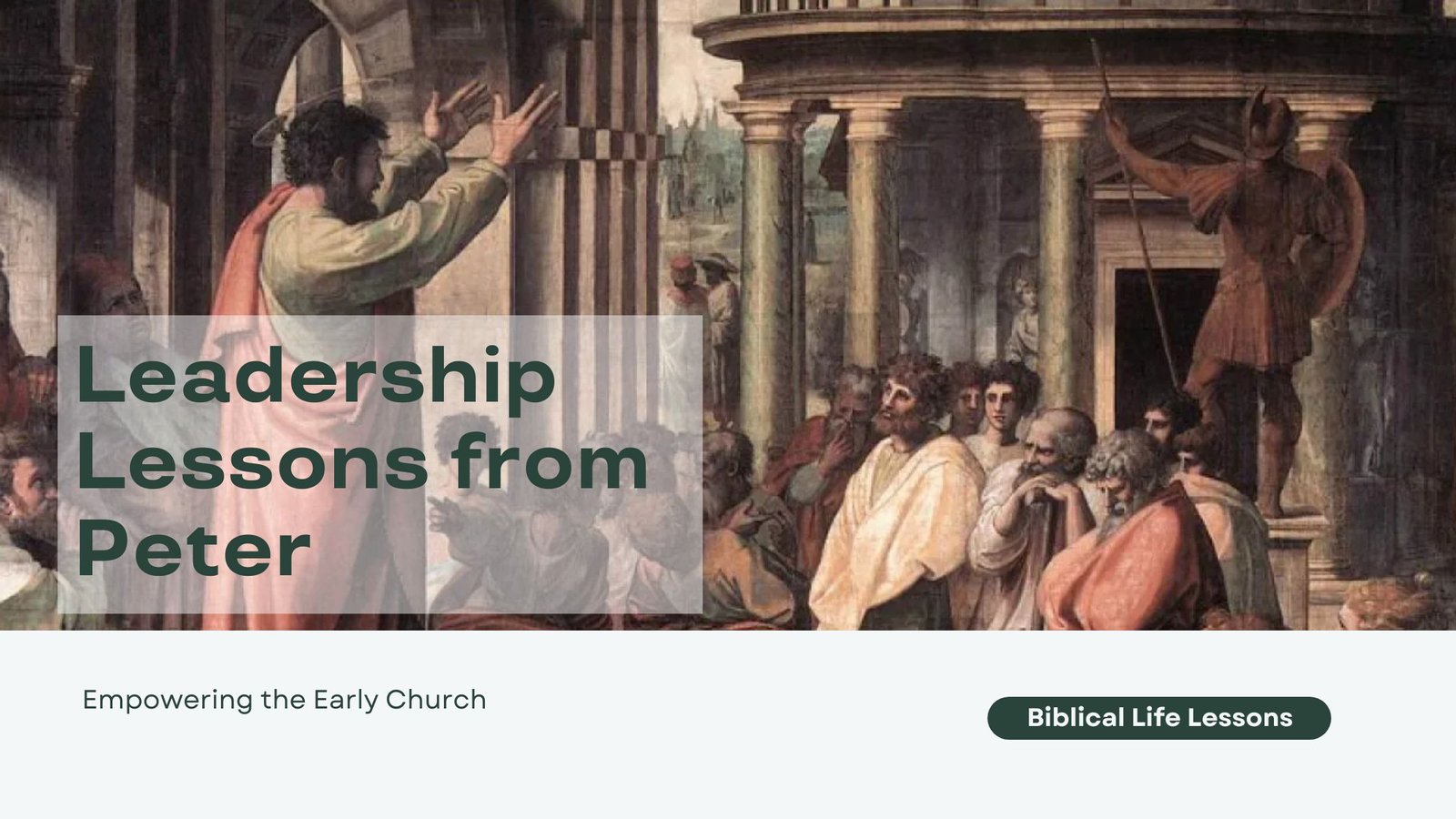In the early Christian church, few individuals played a more pivotal role than Peter, one of the twelve apostles chosen by Jesus. His journey from an impulsive fisherman to a bold and influential leader offers valuable insights into leadership and empowering others. In this article, we explore the leadership lessons we can glean from Peter’s life, drawing inspiration from his strengths, struggles, and ultimate impact on the early church.
1. Embracing Transformation: From Simon to Peter
Peter’s transformation is a testament to the power of Jesus’ influence and guidance. Initially known as Simon, Jesus renamed him Peter, which means “rock.” This change signifies Peter’s potential for steadfastness and leadership. As leaders, we learn from Peter’s example the importance of embracing personal transformation and allowing our encounters with Jesus to shape and mold us.
2. Boldness in Faith and Action
Peter’s boldness in both faith and action is noteworthy. He stepped out of the boat to walk on water with Jesus (Matthew 14:28-29), and he fearlessly proclaimed Jesus as the Messiah (Matthew 16:16). Peter teaches us that great leadership requires courage, the willingness to take risks, and the ability to trust in God’s power even in the face of adversity.
3. Learning from Mistakes: The Case of Denial and Restoration
One of Peter’s most well-known moments is his denial of Jesus three times, as foretold by Jesus Himself (Matthew 26:34). However, Peter’s story doesn’t end with failure. He experiences the transformative power of forgiveness and restoration when Jesus reinstates him and entrusts him with the task of shepherding His flock (John 21:15-17). Peter’s journey teaches us that effective leaders acknowledge their mistakes, seek forgiveness, and allow their failures to become stepping stones toward growth and greater resilience.
4. Leading with Humility and Servanthood
Peter’s leadership style was marked by humility and servanthood. He demonstrates this by washing the feet of the disciples, an act of humility and love that Jesus Himself modeled (John 13:5-9). Peter’s example reminds us that true leadership involves serving others, putting their needs before our own, and leading with humility, empathy, and compassion.
5. Empowering Others: Nurturing and Equipping the Early Church
Peter’s leadership extended beyond personal growth and self-discipline. He played a crucial role in nurturing and equipping the early church. He boldly preached on the day of Pentecost (Acts 2:14-41), empowered others to serve in ministry (1 Peter 4:10), and provided guidance and counsel to the early believers (Acts 15:7-11). Peter’s commitment to empowering others teaches us the importance of developing and empowering those around us, fostering a culture of growth and shared responsibility.
Peter’s leadership journey in the early church offers invaluable lessons that resonate even today. From his transformation and bold faith to his lessons in humility, resilience, and empowering others, Peter’s life exemplifies the qualities of an effective leader. As we reflect on Peter’s leadership lessons, may we be inspired to embrace personal growth, lead with courage and humility, learn from our mistakes, and empower those around us. May our leadership echo Peter’s example as we seek to build vibrant and impactful communities of faith.
Subscribe for Daily Email Devotionals









